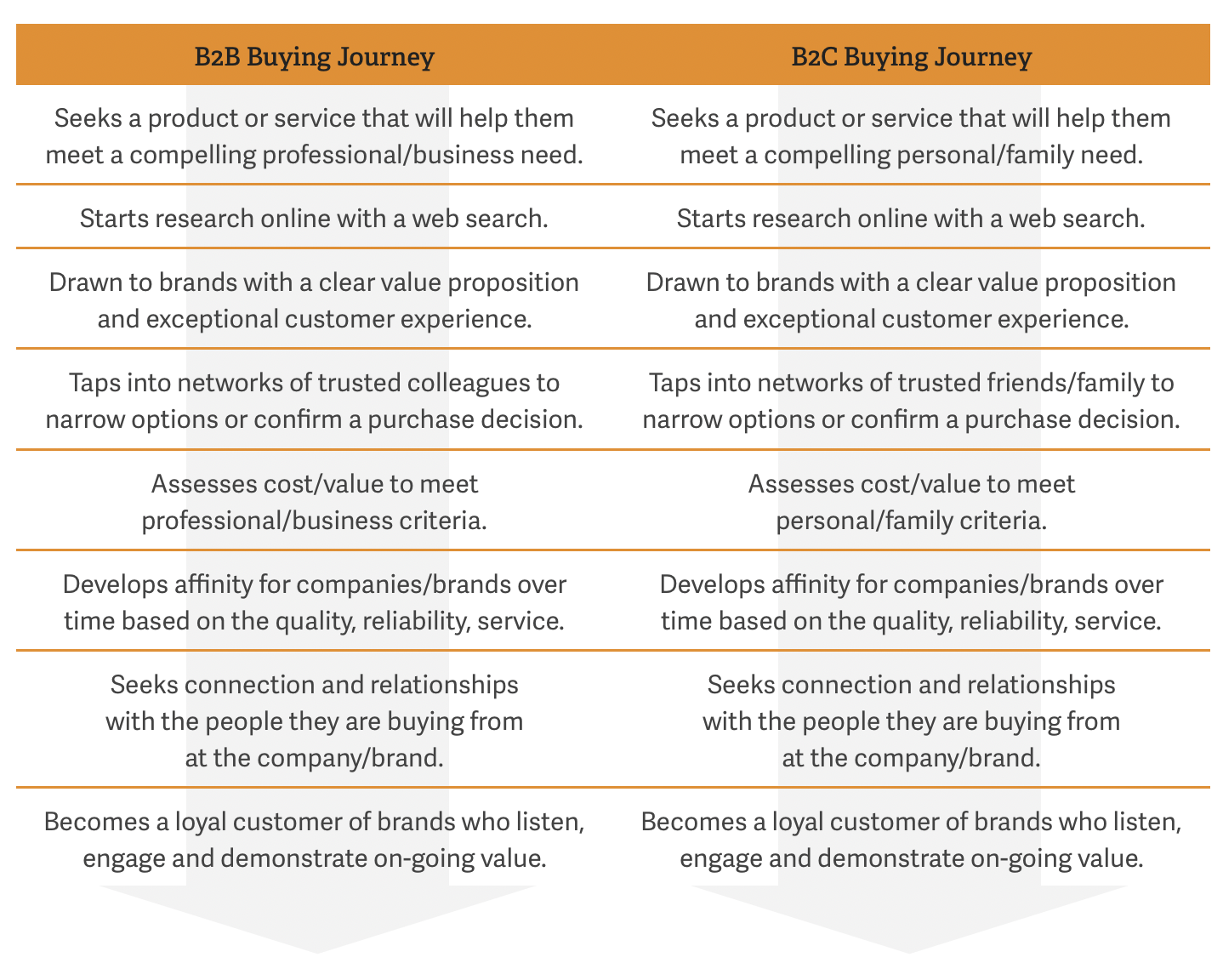While there is still a place in marketing strategy to account for B2B vs. B2C audiences, the distinction is becoming less important. Why?
B2B (business-to-business) vs. B2C (business-to-consumer) marketing is a common way to divide marketing professionals into two camps. Marketers of B2B products and services are charged with reaching a professional or business buyer, while marketers of B2C products and services are targeting private consumers.
While there is still a place in marketing strategy to account for B2B vs. B2C audiences, the distinction is becoming less important. Why? Because business and consumer buying habits are converging. And this convergence represents a critical shift that today’s marketers need to embrace to succeed.
Where B2B vs B2C Still Matters
The fundamental differences between B2B and B2C marketing, and why they matter to marketers, are relatively straightforward:
- Buyer Needs: The B2B value proposition is aimed at professional/business needs, while B2C is aimed at personal/family needs
- Buyer Mindset: B2B buyers are spending company money, while B2C buyers are spending their own money
- Buying Process: B2B purchasing can be highly regulated and process-driven, while B2C purchasing is often more spontaneous and less predicable
But in spite of these and other basic distinctions, there are some underlying fundamentals that have changed.
The Convergence of B2B and B2C
The products and services can be very different, but the way that buyers behave in the buying journey are largely the same.

Today’s technology-driven, connected society has shifted the center of power. Marketers – whether they are B2B or B2C – don’t control the narrative around their brands any longer. The customer’s ubiquitous access to information controls the narrative.
What This Means for Marketing Strategy
DKY has served both B2B and B2C clients for over 25 years. And yes, we still utilize specific strategies and tactics that address B2B vs B2C objectives.
Having a clear, accurate understanding of where your best customer is will always be fundamental in marketing planning. Custom strategies and tactics for any business will flow naturally out of this knowledge.
But as illustrated here, the customer journey for B2B and B2C buyers today is largely the same. Whether a prospect is looking for a filtration system for their manufacturing line, or a new RV for the family, the steps and methods they employ aren’t as distinct as they once were.
Today’s Marketing is B2P
You’ve heard it said that people buy from people. Except in cases of highly commoditized, low-cost products, this is fundamentally true. So rather than focusing on B2B vs B2C, you should be thinking about B2P: Brand-to-Person.
B2P is space where the companies like Apple, Chick-fil-A, Disney, and Southwest have build legendary brands. Brands and marketers who emphasize deeper, more personalized relationships with their customers – B2P brands – prevail.
Here are a few questions to help you assess where you stand as a B2P marketer:
- If a great prospect were to type a generic, needs-based search phrase into Google that represents one of your core products or services, would you appear in the search results? And if so, how accurately do those results portray your brand?
- If you audited your current sales and marketing materials, is there a focused, consistent message about how you meet customer needs? Or is it a list of reasons why your company/product is superior?
- Are all of your communications channels punctuated with fast, easy connection points for a prospect or customer to get personal service from a trained representative from your company?
- Is your customer experience – from pre- to post-sale – clearly defined and obsessively aligned to your brand purpose every step of the customer journey?
In 2020, making this shift in your marketing strategy is not an option. Marketers and brands who fully embrace a B2P approach will lead the way.
If you would like to elevate your B2B or B2C marketing by becoming a B2P brand, let’s talk.
